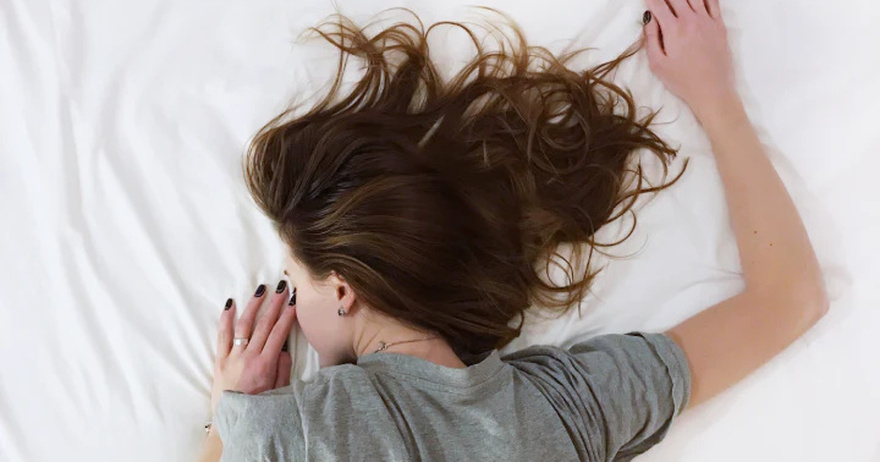We all have heard from our elders that we should not sleep with wet hair to avoid catching a cold. It turns out that sleeping with wet hair is bad for your health, but it can increase the risk of developing a fungal infection on the scalp as well as damage your hair.
Read on to find out why you should avoid sleeping with wet hair.
1. It could cause severe hair breakage
Hair is at its weakest when wet, so it’s not surprising to hear that you’ll be increasing the amount of breakage by leaving your hair wet whilst you sleep. As you toss and turn, friction will cause the hair to snap more easily than if your hair was dry.
You might think leaving your hair to air dry is better than applying heat, but is it really?
2. It can make you sick
If you are sleeping with the air conditioner on or it’s winter, there are high chances that sleeping with wet hair will make you feel colder and ultimately sick.
3. You will spend more time styling your hair
When you sleep with wet hair, you have no idea in what shape your hair will be when you wake up the next morning. This requires more time to style your hair the next day.
4. Worsens your immune system
The old wives’ tale that you’ll get ill from sleeping with wet hair isn’t completely true – you can’t catch a virus simply from having wet hair.
That said, sleeping with wet hair can weaken your immune system which makes it more likely that you could catch a cold or flu virus.
5. It can lead to bacteria growth
Combination of warmth and water leads to the rapid growth of bacteria. So, now just imagine when you sleep with your wet hair on your pillow, how much bacteria will grow on it. The warmth and water from your hair can be the perfect breeding ground for bacteria and mould. And just changing the pillow covers will not help because the water and warmth penetrate into the pillow. Eww.
6. Can cause dandruff
When your scalp remains moist for a longer time period, it will interfere with the function of sebaceous glands on the scalp. As a result, these glands will either start to produce more oil or reduce oil production. Moreover, this may disrupt the natural pH balance of the scalp and trigger dandruff or excessive oily scalp.
7. Makes your hair dull
When the water is absorbed from your hair into the pillow’s fabric the natural oils are taken too. Your hair will look so much duller and dehydrated without these oils.
Dehydrated hair is also much more likely to break. Remember that there is a big difference between hair that is dry to the touch and hair that is dehydrated of natural oils.
8. Wet Hair Can Cause Fungal Infections
Sleeping with wet or damp hair increases the risk of developing fungal infections on the scalp which can lead to dermatitis, dandruff, etc. This is because yeast finds it easier to grow in moist and warm areas of the body.
9. It’ll give you acne
If your pillow is crawling with bacteria, chances are you’ll soon be experiencing a break out of acne. Your skin will thank you for drying your hair before you sleep.
10. Can cause hair loss
Can you believe this? Going to bed with wet hair can result in hair loss and, more specifically, scalp ringworm. Scalp ringworm is a type of fungal infection, caused by warm and damp conditions.
It’s highly contagious, so take care to wash anything that has come into contact with your scalp. We’d rather grow long hair than lose it!
What you should do instead
Sleeping with wet hair might cut a few corners, but to avoid any of the above, here’s what you can do:
– Wash your hair 2-3 hours before your bedtime so that you have enough time to dry them.
– Blow dry your hair if you are washing them at night.
– Sleep on a silk pillowcase; it will prevent hair breakage by reducing friction.
Depressed People Use These 7 Words More Often
Just one spoon and you’ll run to the bathroom and release all the poop stuck in your body.
Devastated Dad Speaks Out After Infant Daughter Killed by Family Dog – ‘I’d Give My Life to Bring My Baby Back’
Gabby Windey Claims Michael Buble ‘Eye-F***ed’ Her During Judging on ‘DWTS’: He’s ‘Beyond Dead to Me’
